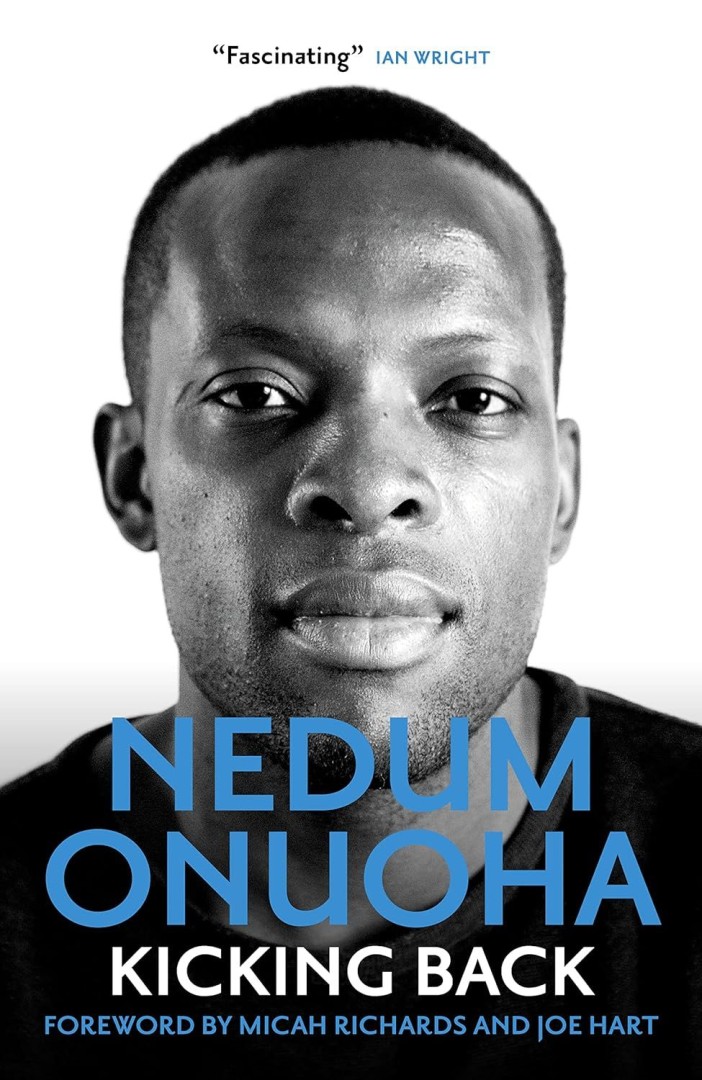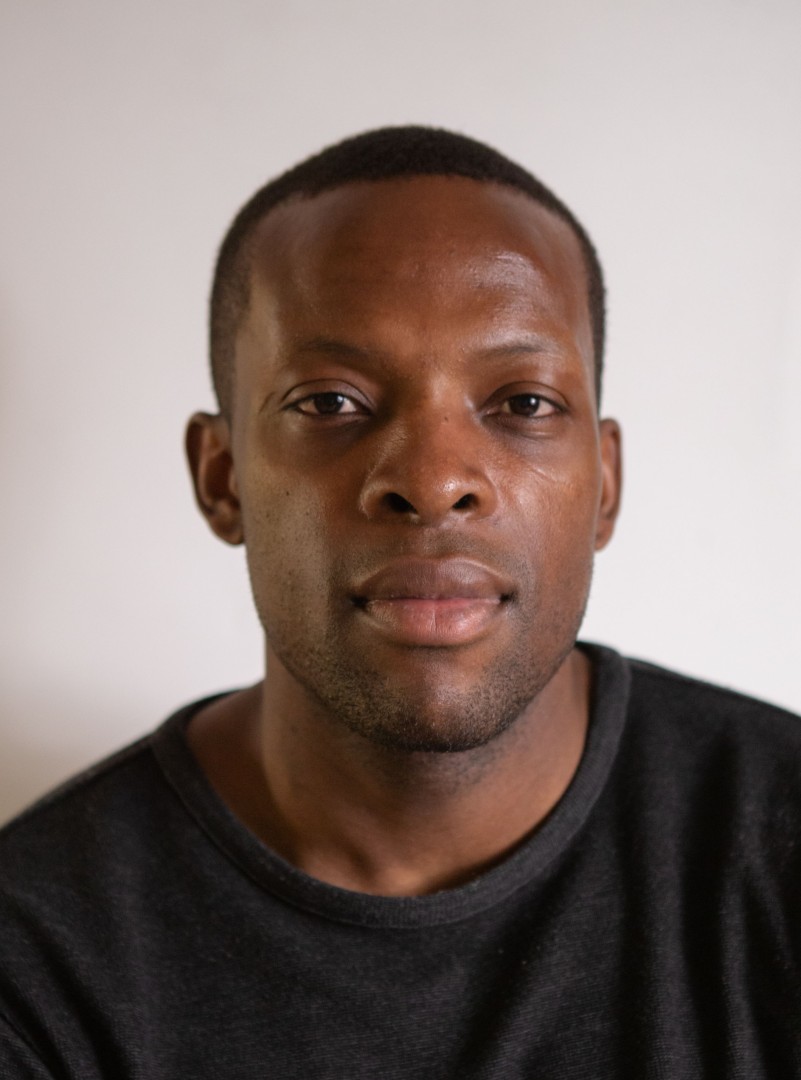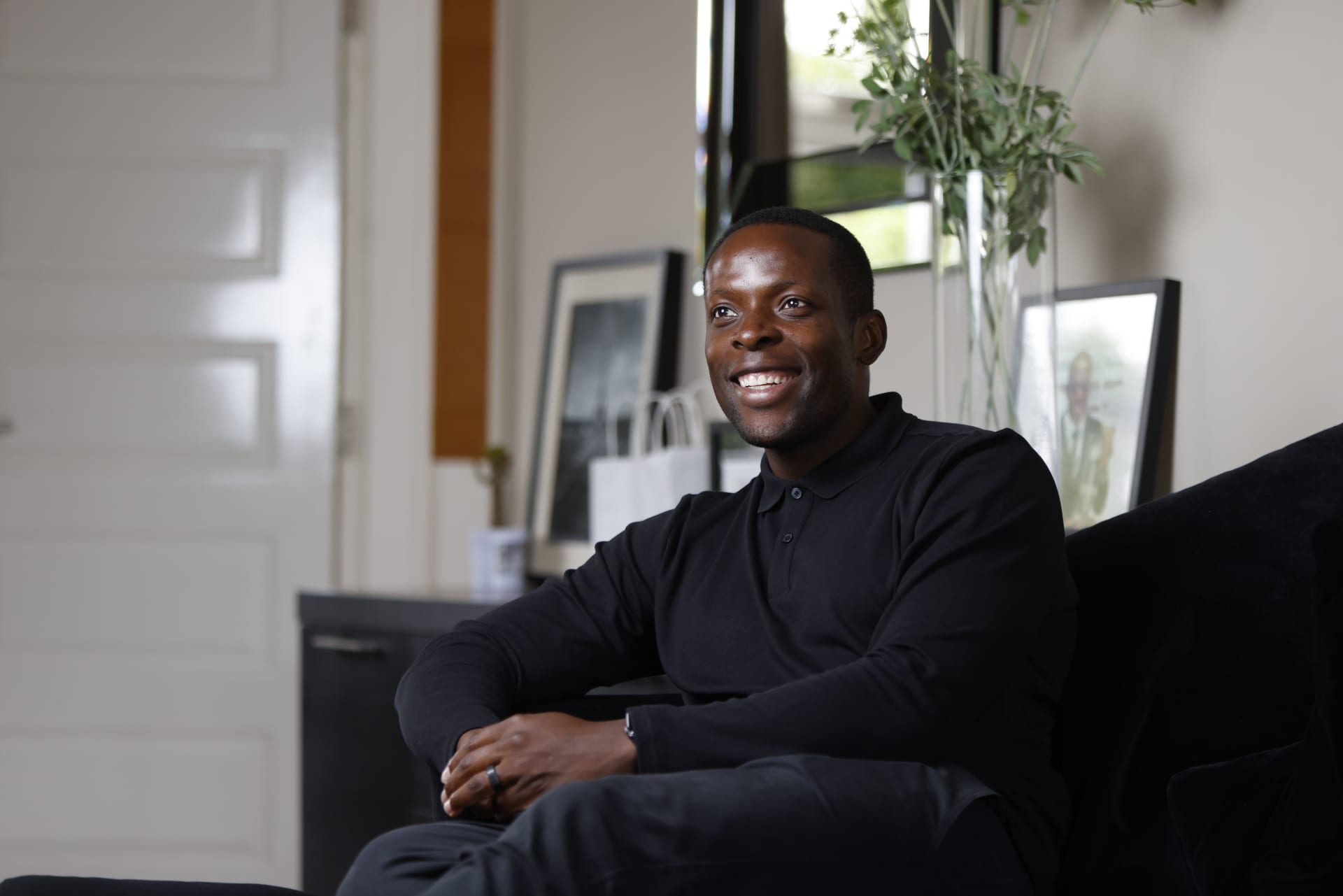Former Manchester City and Queens Park Rangers defender, Nedum Onuoha made his debut for City at 17 while he was still at school.
He went on to play professional games in the UK and United States. Born in Nigeria, he grew up in Manchester – close to where the towering Etihad Stadium now stands – and entered City’s Academy, already a fan at age 10. Now a popular BBC and ESPN football pundit, he launched his podcast, Kickback with Nedum in 2019 and in 2022 his book, Kicking Back, was published by leading political publishers, Biteback Books. Nedum will be in Oxford next month as the invited guest of Oxford United Football Club, speaking at the world-famous Oxford Literary Festival. Offered the opportunity for an interview, I converted that chance into a goal.
Tell me about your forthcoming talk with Oxford United Football Club at the Oxford Literary Festival.
I was very fortunate to be able to speak at the Oxford Literary Festival last year and I think there’s huge interest in terms of how [football] relates to communities on a larger scale. To be able to engage with an audience was a lot of fun. I didn’t think I would be going down to Oxford for a second year to speak to a team who I had no connections to, but they invited me down to collaborate in talking about certain issues within football, speaking to some of the younger players and anybody who really wants to engage with my story.
Oxford United, the Literary Festival, and football doesn’t feel like an obvious grouping, but the perception of football seems to be changing with more positive messaging slowly emerging.
I’m a trustee of Manchester City's charity and you realise how important football is to the local community. You realise that football is more than just the game; to some people it’s everything. It’s the most watched thing in England, in the world. You don’t necessarily have to support a team or play it to understand its importance. It has so much of an impact within communities so you can’t say that it’s just a game played on a field by 22 players. That is why I think you can have a collaboration like this; a literary festival working alongside a football club – it makes perfect sense and will draw an audience.

What originally lead you to write Kicking Back?
So, I didn’t really want to write a book to begin with, but I was talked into it. I thought if you are to write a book you must have won the World Cup, you must have won a Premier League title ten times over – you know, the quest for success. There are so many more layers to what the sport is, which don’t really get spoken about and it was a chance to be open and honest. When you speak to media whilst you’re playing you can never really be yourself because you’re always guarding a gate to something. You’re always wary about saying too much just in case you get yourself or your team into trouble. To be able to talk about those times, with the added perspective of having grown – because me at 17 is very different to me at 37 – is such a great way to reflect. It felt really important to me, and I think it was important to some people who were involved in the story.
Was football punditry always your chosen route after retiring as a player, as opposed to coaching or management?
If you think about the way that football works, the player turnover is quite fast. For every 10 people that retire there aren't necessarily going to be 10 jobs available, especially within the world of coaching. You’ve got somebody like Vincent Kompany, who's 37 years-old, coaching against someone like Roy Hodgson who's in his 70s. I realised that I enjoy a normal life, spending time with my wife, with my children, getting the chance to see my friends, and if you enter the world of coaching you've got less time, more responsibilities and less job security – it’s driven by results and essentially there are no guarantees.
You are the most incredible multitasker. I’m still trying to get my head around the fact that you were in sixth form doing A levels when you started playing Premier League games – and you went on to ace them.
I remember one of my teachers said whatever you get in this first year (AS Levels) expect to drop a grade in your A Level. I thought, what a weird thing to say to the students you’re supposed to be teaching and I went the other way; I went from having a B to an A, because I wanted to prove him wrong. There’s this idea that footballers have no time; we do have time and what you do with it is up to you. Some people want to sleep, some people want to prioritise physical recovery, some play other sports, like golf, but if you've got exams and you've got deadlines you can’t escape them.
I’m guessing Manchester City were supportive of you through school, so what was it like when you eventually switched teams.
I was very fortunate because the first seven years of my career I was playing for the team I came through the academy for, in the city I called home, playing for the team I supported. But Roberto Mancini came in and within a few months I knew I wasn't going to be playing much. To have to leave was a big jump but it was made easier because Mark Hughes, the previous manager, went to Queen’s Park Rangers (QPR) and expressed an interest in me.
And then you played for QPR in that monumental match with Man City in 2012 when City ended up taking the League title with a historic last-minute goal by Sergio Aguero. Is it insensitive of me to bring it up?
(laughing), it’s not insensitive at all. It’s quite an important goal in the history of football. I think the fact it ended the way that it did [City won the League but QPR were saved from relegation by Bolton drawing in their game against Stoke] means that I can be quite happy because it could have gone either way. Say we went down as QPR and City won the League – or vice versa – it would have been like something you never really escape from, but now people talk about it and it is an easy thing to discuss.
Last year City won the treble (The Premier League, The Uefa Champions League and the FA Cup): there’s been a lot of change.
I’ve got an idea, especially in relation to City. A lot of the older fan base supported the club when they were the underdogs and saw it as a personality trait to take pride in. The rise City have had is astronomical…it doesn’t suit certain people but I would still rather be supporting a team that’s in contention to a title of Champion’s League, Premier League, whatever, than the one I played in for a little while who scored like 10 goals across 19 games in a season. It’s what some people long for but I think they forget how miserable they might have been in that moment.
Now they just complain if City aren’t featured first on Match of the Day.
I am a fan but also work in punditry and there are a few things which I’ve learned. Every fan believes their team should be on first but thinks they will be on last because there’s a bias against them. A couple of things are true though; the biggest fan bases and audiences are around Manchester United and Liverpool and then I think next up is Arsenal. The biggest stories are the ones which draw the most people so if there’s a story at City against the equivalent story at United, the Manchester United one is probably going to lead.
There are so many clichés and stereotypes. What we think about the way football works is led by about five or six voices that dictate the narrative, but those voices have only ever been at about three football clubs. What they say makes sense to them but what they see is far more narrow than what football is or should be. I retired three years ago, and the game has changed. When you listen to someone who retired 20 years ago how do you reckon they see the game? Just going to put that one out there.

You have spoken about your time in America playing with Real Salt Lake which coincided with killing of George Floyd in 2020. What was the response to that like in American sports?
There was the opportunity for players to make a stand at the start of the tournament and that was supported by the MSL [Major Soccer League]. The way that football works in America is very different to the rest of the world. Over in the US, the players’ union is far more significant because the players come together to make decisions. In the UK we have the Professional Footballers Association (the PFA) and, in my humble opinion, I think they do good work overall but some of the people who lead it are of the same generation as the managers. I don’t think they always necessarily have the more modern players’ needs at heart.
So, do you think anything much has changed since then?
Yeah, I think stuff has changed. I think this was probably one of the only times in my lifetime where I could be open and honest about my past experiences and have people listen: people actually asking how did [being the target of racist abuse] really feel. Suddenly the audience became a bit bigger, and it was leading into wider topics and discussions. But, then – as is the case with most things which are to do minority groups and such – the focus passes away pretty quickly, some people say they’re tired of it.
Like, they put their black square on Instagram and moved on.
Yeah, and you know, I’m of the feeling that with taking the knee if you stop doing it then it’s no longer a discussion. As my kids have gotten older I see that that young people are very impressionable and when they see something like that they want to know what’s it about. When it vanishes, or it’s not a talking point anymore, it’s like it doesn't matter. I would rather someone do something than nothing. Just doing nothing means we’re back in the same position as previously.
In terms of representation, we have seen the women’s game become so much more prominent in recent years. I wonder about other underrepresented groups in football. Do you think that this is down to prejudice or are there different barriers for some minorities?
It’s a good question. I think there are more black players represented and more people of ethnic minorities represented now within the professional ranks. But there aren’t enough people from South Asia. I don’t know what the main reason for that is, whether that’s a case of culture or there is a form of racism but they are not represented enough.
A lot of people tell you representation doesn’t matter but the ones who are telling you are the ones who've been always been represented. In December we had the first ever female referee in a Premier League and the first black referee since Uriah Rennie in 2008. I think this should be a positive thing to champion but there are some people saying it’s ‘woke’. What a load of nonsense – to see it is to believe it and to believe it is the dream. I didn’t even realise at the time but my favourite players growing up were Ian Wright, Thierry Henry, Ronaldinho. They are all very good players but also, they look a bit like me. I remember watching the Nigerian national team and I adored those players. When you then hear someone say it doesn’t matter you just hope they aren't the ones who are making the decisions.
Adam Benson, Chief Commercial and Marketing Officer for Oxford United sees the collaboration with Oxford Literary Festival as part of the club’s ongoing initiatives to engage with new and existing audiences: “Our objective is to create a brand that reaches beyond football and into arts, culture, entertainment and leisure. Furthermore, we are committed to providing a range of educational opportunities for our supporters, staff and players, and learning from ambassadors like Nedum is an invaluable part of that.”
Nedum Onuoha will be speaking at the Oxford University Mathematical Institute as part of the Oxford Literary Festival in an event sponsored by Oxford United Football Club.
For tickets and further information visit oxfordliteraryfestival.org/literature-events/2024/march-21/kicking-back.
Photo credit: Sharon Latham









